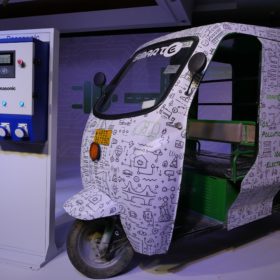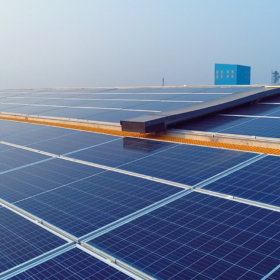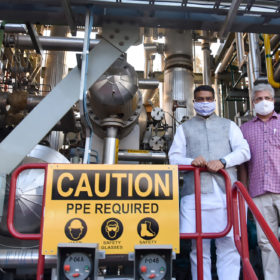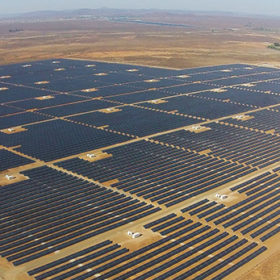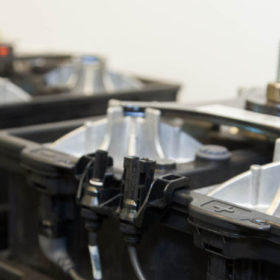Electric vehicle adoption in India will be led by three-wheelers
Electric vehicles will account for 65-75% of new three-wheeler (3W) sales by 2030. Intra-city transport buses will see 25-40% EV penetration and two-wheelers 25-35%. In four-wheeler passenger vehicles, the market will be driven by shared mobility, while just 10-15% of new car sales for personal mobility will be electric.
Best Power Equipments bets on solar
The electronics manufacturer says it will switch focus to solar panels and lithium battery storage as it launches an inverter series for rooftop PV.
IndianOil turns to gas, not green hydrogen, to reduce Delhi bus emissions
The public sector energy company has opened a compact reformer plant at Delhi Transport Corporation’s Rajghat bus depot. The facility will produce hydrogen-enriched compressed natural gas as a bus fuel. A trial period will see 50 gas-powered buses run on the blended fuel with fuel economy and emissions monitored.
Sterling and Wilson to build solar+storage hybrid power plant in Niger
The latest project is another African opportunity for the India-based EPC player after successfully commissioning Nigeria’s first solar-plus-storage hybrid power plant, which is also Africa’s largest battery energy storage system.
Post Covid support required for electric vehicles: FICCI
The industry body has recommended a series of measures including a continuation of FAME II Scheme to 2025, short-term booster incentives for consumers and support for in-house R&D to boost the electric vehicle sector.
India can become electric vehicle manufacturing hub within five years: Nitin Gadkari
The industry needs to cut a dependence on electric vehicle battery imports from China, according to the road transport minister, who said the government is looking to support research into alternatives to lithium-ion technology.
The EV story in post-Covid India
The near-term outlook for electric vehicles (EVs) remains bleak owing to supply and demand headwinds coupled with the expectation of sluggish investment to scale up the support ecosystem.
India’s electric vehicle component market to grow 22% per year for a decade
The market will be driven by shared-mobility electric car deployment and will see annual growth of up to 61.7% for battery management systems.
UK based Faradion to start sodium-ion battery manufacturing in India
The sodium-ion battery technology developer has bagged its first order from ICM Australia and is looking at India as the next destination for manufacturing with the initial target set as 1 GWh.
Covid-19 impact on India’s energy storage industry
The onset of Covid-19 has brought into focus the critical importance of indigenization and localization of battery cells as a series of disruptions in the supply chain for Li-ion batteries will also affect Indian electric vehicles and stationary energy storage market.
